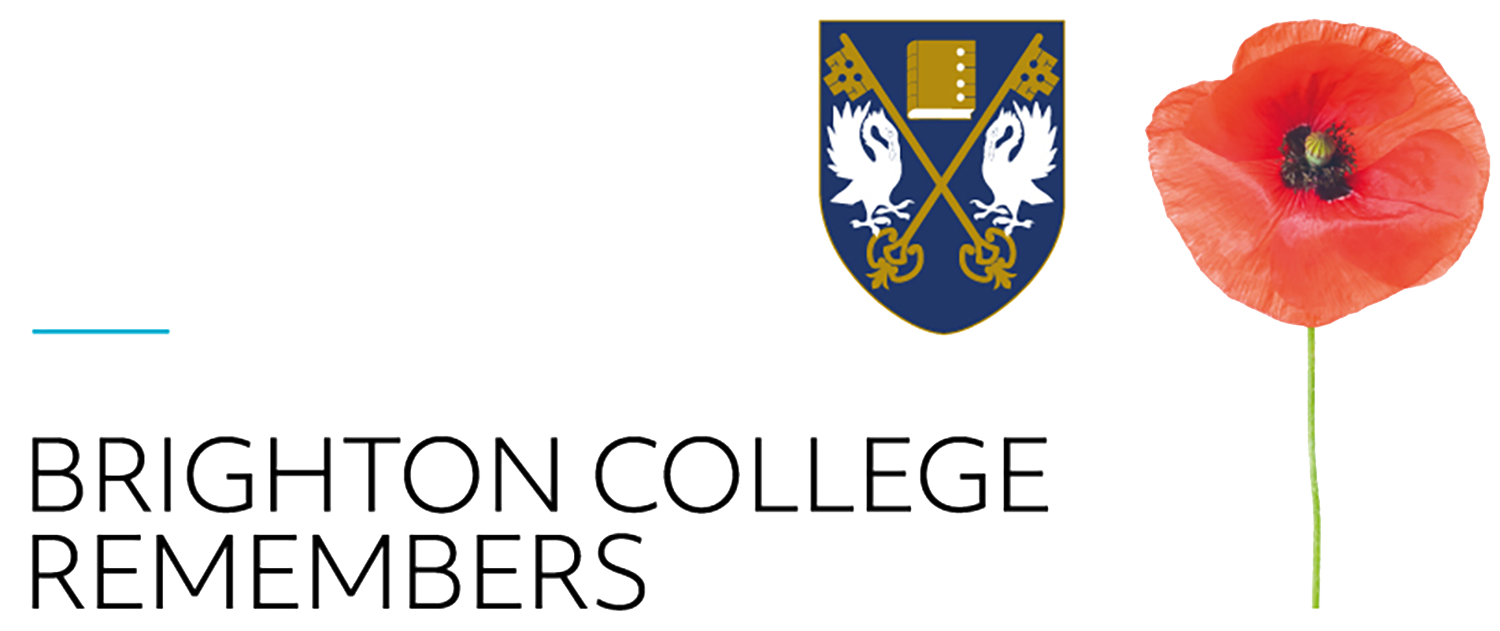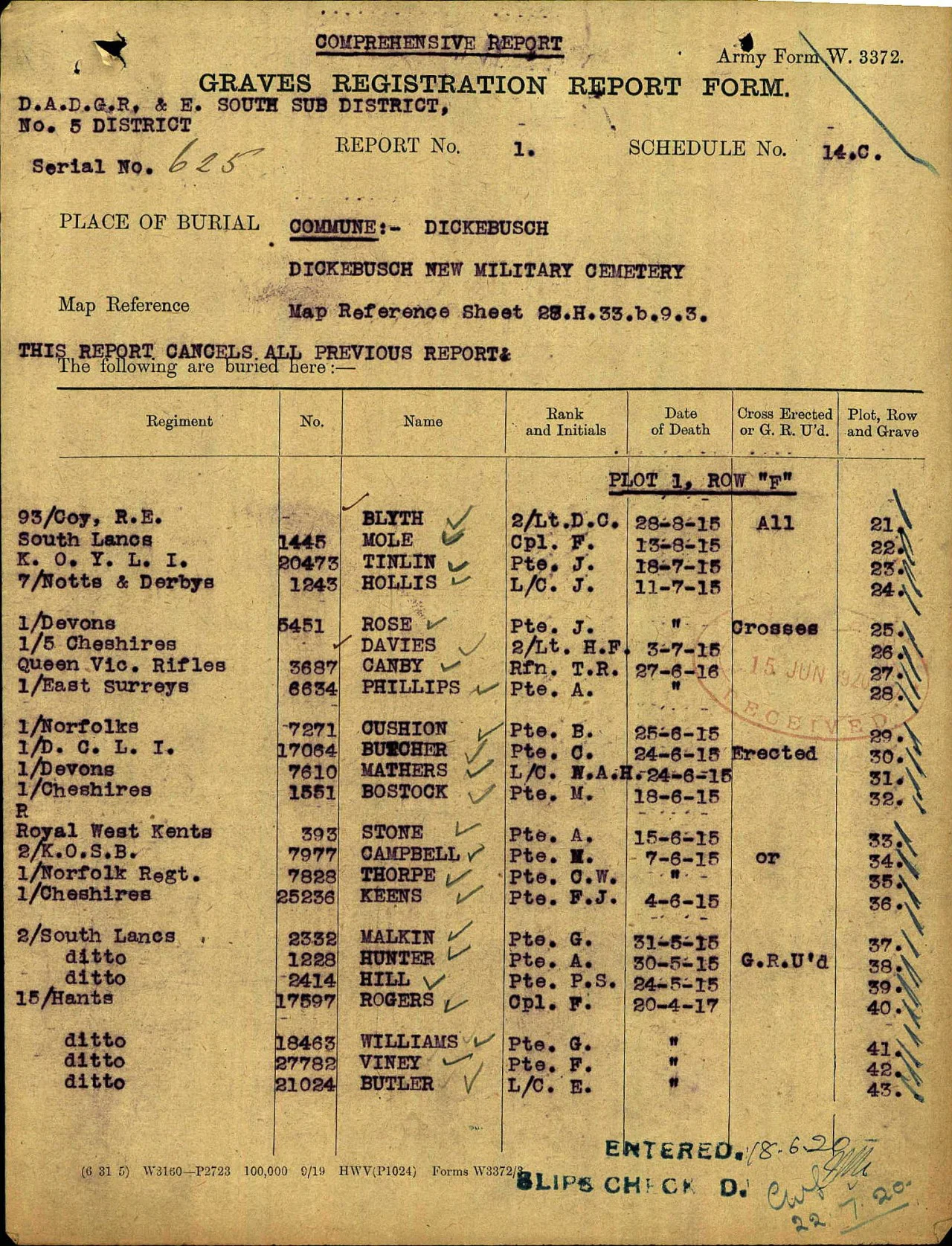Second Lieutenant, Royal Engineers
Born: April 8th 1893
Died: August 29th 1915
Age at Death: 22
Killed in action, France, August 29th 1915
Son of Carleton Blyth of London and Buenos Aires. Joined the firm of J G White & Co, Buenos Aires. Royal Engineers (Sec. Lieut, October 1914).
Grave reference: F.21. DICKEBUSCH NEW MILITARY CEMETERY
A donation has been made to the memorial statue in honour of this soldier by The DART Family.
2nd Lieutenant Denis Carlton Blyth
Dennis Carlton Blyth was born on the 8th April 1893 in Refrullic in Argentina, to Alfred Blyth and Frances Blyth (neé Rolls). He was the eldest of five children born to the family. By 1901 the family had returned to England and were living in St.Alban’s but between then and 1911, the next census, they moved back to Argentina. Argentina in 1900 was what would be called in modern parlance an ‘emerging market’ with an economy which was growing faster than anywhere else on the planet. Its stellar economic growth was driven by the exports of refrigerated meat to European markets and large scale British investment, especially in the railway network, which was entirely British run. Blyth’s father Alfred worked in the Argentine railways, rising to the rank of Chief Clerk, and was awarded the CBE for his efforts. The granting of the CBE is noteworthy because despite the huge scope of British influence and economic interests in Argentina at the early 1900’s the country was still an independent state and Alfred Carleton’s position was purely commercial rather than official.
Despite his family’s return to Argentina Blyth was educated in England, first at Christ’s Hospital between 1907 and 1909 and then at Brighton College (School House) between 1909 and 1911. In both schools he was a member of the OTC but, unlike some of his fellow pupils and future officers, did not rise above the rank of private. Following school he returned briefly to Argentina before commencing a degree in engineering at University College, London in 1913.
The following year, when war broke out, he enlisted in the Royal Engineers and rapidly received a commission as a 2nd Lieutenant in 93rd Field Company, Royal Engineers which was formed in September 1914 as part of the 17th (Northern) Division. As a territorial division the 17th was initially allocated to home defence duties and, despite its name, based near Winchester in Hampshire. However the growing demand for more troops and the willingness of territorials who had initially signed up for home defence to fight overseas meant that by July 1915 this decision had been reversed and the division was sent to France.
Members of the Royal Engineers did not routinely serve in the front line, indeed membership of the ‘technical branches’ of the army was undoubtedly much safer than the infantry regiments in which the vast majority of his fellow Old Brightonians served. However officers in the Royal Engineers were occasionally called upon to supervise ordinary troops in the construction of trench systems and in particular the wiring used for the primitive telephone landline telephones which were the main means of communication because unlike the ordinary infantry officers they actually had the technical expertise to do so. Shortly after his arrival in France, on August 28th 1915, Blyth was leading such a ‘wiring party’ when it was noticed that the covering patrol from the 12th Manchester regiment, which was supposed to screen the party while it carried out its work, was not as far forward as it should have been. Despite this, he took the courageous decision to carry on with his work and complete the telephone network for that sector of the front which he had started the night before. It was to be a fatal mistake because despite the cover of darkness the party was heard by an enemy listening post and he, along with some others, was shot and killed.
Denis Carlton Blyth is buried in the New Military Cemetery, Dickebusch, Belgium and commemorated on the Hayes War Memorial.
Source: LEST WE FORGET PROJECT, Brighton College 2014/15



